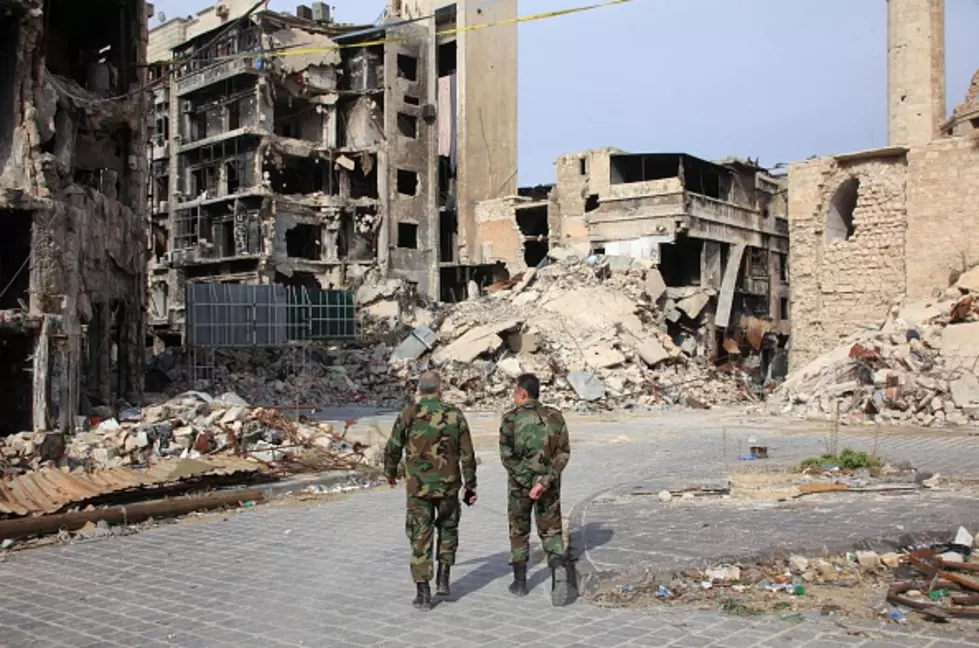
A String of Bombings Across Baghdad Killed More Than 50 People Tuesday on the 10th Anniversary of the U.S.-led Invasion of Iraq
Tuesday’s 10th anniversary of the U.S.-led invasion of Iraq was marked by a dozen bomb blasts throughout Baghdad and a police base in a neighboring Shiite town just south of the capital.
A series of coordinated car bombs and roadside blasts began near the heavily fortified Green Zone around 8 AM, targeting first a popular restaurant in Baghdad and, shortly afterward, a gathering place for day laborers in the city. A bomb stuck to the bottom of a minibus later exploded in a poor Shiite neighborhood of Sadr City – a suburb of Baghdad. A car bomb was detonated not long after in the same neighborhood, as well as a bomb targeting a police patrol.
Several more explosions struck other Shiite neighborhoods, and a mortar shell struck a clinic just outside the capital. A bus stop 30 miles south of Baghdad was also targeted, and a suicide bomber struck a police base just south of Baghdad as well.
While no group has yet to take responsibility for the attacks, some believe they are the work of Sunni Islamic insurgents linked to al Qaeda. Such groups often make use of spectacular coordinated attacks in Iraq to undermine confidence in Shiite Prime Minister Nuri al-Maliki’s government. Sunni and Kurdish minorities within Baghdad often express fears that al-Maliki is using Iraqi security forces to consolidate authority and failing to live up to agreed-upon balances of power.
Al-Malaki’s cabinet on Tuesday postponed local elections in the provinces of Anbar and Nineveh for six months in response to threats of violence toward elector workers. Anbar in particular, according to security forces, has become the center of a regrouping of Sunni al Qaeda forces. Thousands of Sunni protestors have been rallying in Anbar against al-Malaki, and the region’s close proximity to Syria – a country currently seeing a Sunni rebel uprising - serves to further complicate the process of implementing security measures there.





